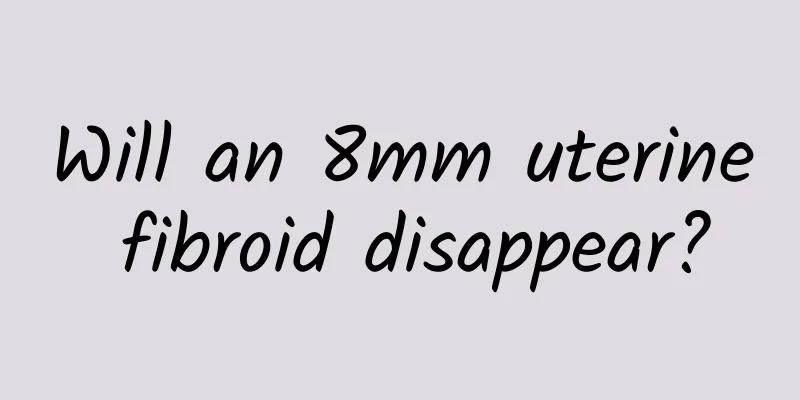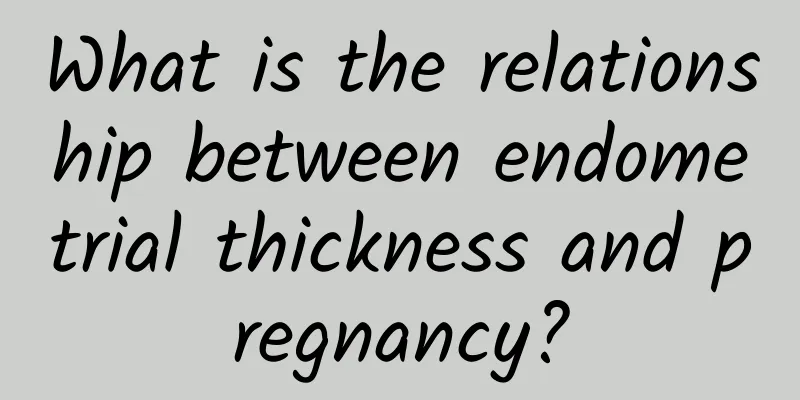Can you get pregnant if you have multiple uterine fibroids? What harm will multiple uterine fibroids cause?

|
Multiple uterine fibroids often occur between the ages of 35 and 50, mainly because different types of fibroids can occur simultaneously on the same uterus, making them more difficult to treat than general uterine fibroids. So, can you get pregnant with multiple uterine fibroids? What are the hazards? In fact, in some cases, uterine fibroids may cause infertility. Of course, uterine fibroids cause infertility, which is related to the location, size and number of fibroid growth. Submucosal uterine fibroids can cause the endometrium to become thinner, atrophic, inflamed, and have a reduced blood supply, which is not conducive to egg implantation. Some submucosal uterine fibroids can cause abnormal uterine bleeding, which is even worse. Uterine fibroids can stretch or distort the space of the uterine cavity, causing sperm to take more routes to reach fallopian tube fertilization. Generally speaking, subserosal uterine fibroids do not affect pregnancy, but when the fibroids grow to both sides of the broad ligament, they will change the position of the fallopian tubes and ovaries, making it difficult for the fallopian tubes to capture the eggs discharged by the ovaries, and sometimes even block the patency of the fallopian tubes. If uterine fibroids grow at the junction of the cervix and fallopian tube, it will hinder the passage of sperm. When fibroids grow rapidly or degenerate, their compression effect will increase the contraction of the uterus, reduce the blood supply to the uterus, change the blood supply to the endometrium, which is not conducive to the growth and development of the fetus, and lead to natural or repeated miscarriage (abortion rate is about 41%). It can be seen that uterine endocrine dysfunction occurs in multiple uterine fibroids, changing the local internal environment and is not conducive to pregnancy. In addition, multiple uterine fibroids can also cause other complications: infection and suppuration, torsion, uterine fibroids and uterine body cancer, uterine fibroids and pregnancy. |
>>: What causes uterine fibroids? Are depressed women more likely to develop uterine fibroids?
Recommend
What are the symptoms of cervicitis
Cervicitis is a common gynecological disease with...
Analysis of the causes of recurrent spontaneous abortion
Recurrent spontaneous abortion is an increasingly...
What to do if you have irregular menstruation due to anemia?
What to do if you have irregular menstruation due...
What are the dangers of amenorrhea in women
Amenorrhea is usually a condition that occurs in ...
What causes vaginal blood clots?
Vaginal blood clots are usually normal menstruati...
Stay thin and don’t go hungry! Actresses teach you the good habit of double fermentation
Recently, some well-known Japanese and Korean fem...
What fruits can I eat after an abortion? What is the best thing to eat after an abortion?
1. Dietary considerations after abortion surgery ...
Which hospital is good for treating cervicitis?
Which hospital is good for treating cervicitis? M...
Skipping a meal can lead to these terrible consequences
【Core Tip】: Want to eat less meal to lose weight?...
Is it mycoplasma-induced adnexitis?
Mycoplasma infection is one of the causes of adne...
What are the life care measures for bacterial vaginosis?
Vaginitis generally affects middle-aged and elder...
Let’s take a look at how to prevent acute pelvic inflammatory disease?
Acute pelvic inflammatory disease is a type of pe...
What can I eat if I have uterine fibroids and have trouble sleeping? What medicine can I take if I have uterine fibroids and have insomnia?
What can I eat when I have trouble sleeping due t...
TCM syndrome differentiation treatment of vulvar leukoplakia is effective
Xiao Mei is 36 years old. She has had repeated sy...
What is chronic adnexitis? What are the symptoms?
Chronic adnexitis is a gynecological disease that...









